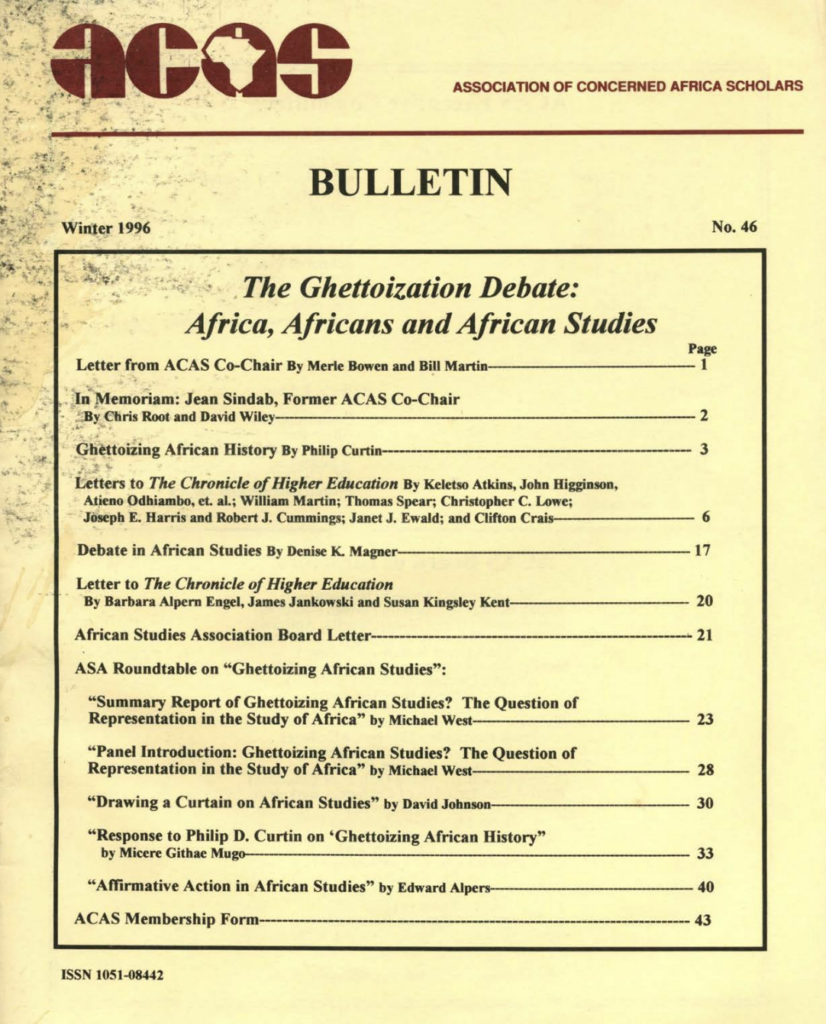From one lifetime to another Our Story
Bridging continents, cultures, & causes
The Mĩcere Gĩthae Mũgo Foundation was born out of the transformative life and legacy of Professor Mĩcere Gĩthae Mũgo—an intellectual force and humanitarian whose life’s work bridged continents, cultures, and causes. From her early days witnessing Kenya’s fight for political freedom to her scholarly contributions and global activism, Professor Mũgo’s journey was one of constant resistance against neocolonialism and a steadfast commitment to creating new sites of knowledge.
Through exile, academic excellence, and public advocacy, she touched lives, nurtured communities, and catalyzed positive social change. In her own words, “The path of people’s struggles is paved with courage to build new homes, new lives, wherever we are.”
The foundation was established to honor and extend her lifelong mission: to empower voices, create new sites of knowledge, preserve the transformative power of Africana literary and oral culture, and promote equity. Rooted in the principles of Utu—the African philosophy of shared humanity—the Mĩcere Gĩthae Mũgo Foundation envisions a world where ancestral wisdom and creative expression guide us toward a more just, equitable, and empowered future for all.
Our Timeline
An 80-Year Journey Toward a Vision
The Mĩcere Gĩthae Mũgo Foundation did not emerge in isolation—it stands as the culmination of an eight-decade journey shaped by the life, work, and unwavering spirit of Professor Mĩcere Gĩthae Mũgo. This timeline does not merely recount her biography; rather, it charts the milestones, struggles, and triumphs that laid the foundations for this institution.
Each moment represented here—her literary and intellectual contributions, her advocacy for justice, her resilience in exile, her devotion to Pan-Africanism and community-building—served as a stepping stone toward the creation of a space dedicated to empowering voices, preserving Africana knowledge, and advancing equity.
Like seeds planted across time and place, these moments germinated into the living vision of the Foundation today. This is not just herstorical—it is a continuum of resistance, creativity, and transformation, stretching from the past into the future.
2024
A posthumous Doctorate degree in Languages, Linguistics and Literature from the University of South Africa (UNISA) in Pretoria, South Africa is awarded to the late Prof. Mĩcere Gĩthae Mũgo recognition of her commitment to the pursuit of African Excellence upholding the values of integrity, empathy, and solidarity in academia and beyond.
The Mĩcere Gĩthae Mũgo Foundation is established, with a mission to preserve her legacy and continue her work for developing new sites of knowledge, preserving Africana literary and oral culture, and fighting for global justice and equity.
Micere is posthumously awarded the African Literature Association’s Fonlon-Nichols Award for Excellence in Creative Writing and Contributions to the Struggle for Human Rights and Freedom of Expression.
2023
2022
2021
Mĩcere delivers the keynote address on the 50th anniversary celebration of Cornell University’s Africana Studies and Research Center entitled The Imperative of Utu/Ubuntu in Scholarship if Africana Studies and Research are to be celebrated as liberated zones in Academia. An expanded, edited and annotated version, The Imperative of Utu/Ubuntu in Africana Scholarship, is published as an African Studies manifesto on the purpose of teaching and research, and as a clarion call for the future of Black Studies.
The Royal African Society, presents its second Lifetime Achievement Award in African Literature, to Mĩcere Gĩthae Mũgo, at the Royal African Society’s Africa Writes Festival.
2020
A Doctor of Letters honorary degree in Literature (DLLit) from her alma mater, the University of Nairobi, is conferred on Prof. Mĩcere Gĩthae Mũgo as she is lauded for her dedication to teaching, research, and community engagement.
2017
In commemoration of the 50th anniversary of the Nigerian author Chinua Achebe’s Arrow of God, Mĩcere and Professor Herbert G. Ruffin II, co-edited Illuminations on Chinua Achebe: The Art of Resistance, a masterful collection of essays by distinguished scholars, authors, and historians. By using Arrow of God as the lens from which to frame Achebe’s use of Orature and writing to speak disciplines, the anthology injects new perspectives into the entire body of the iconic author’s works.
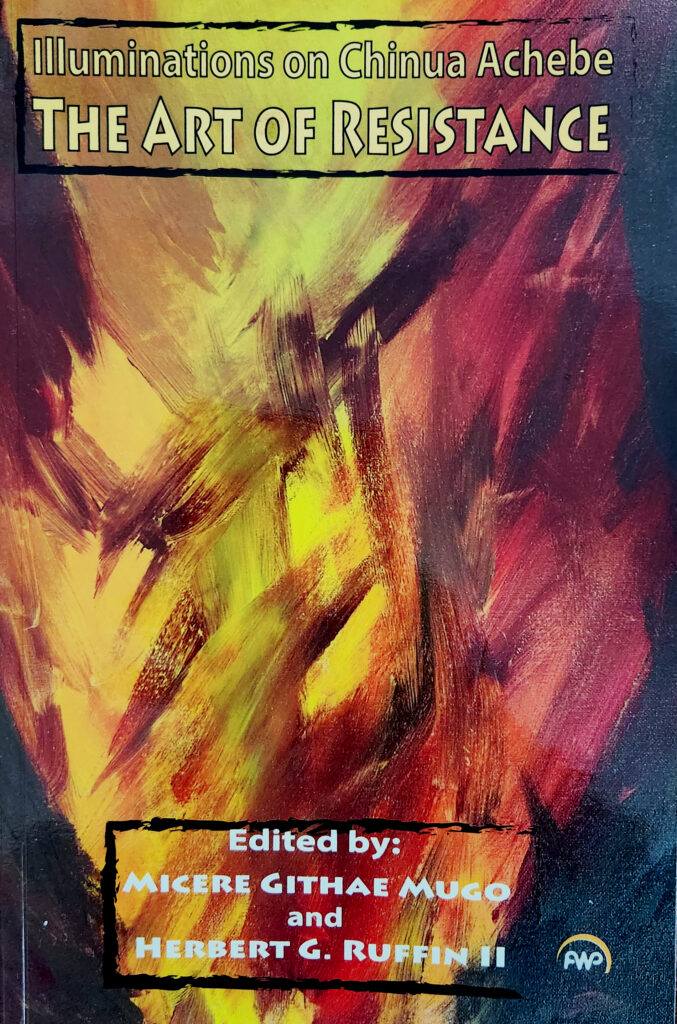
2015
After 22 years of service, Mĩcere retires as Professor Emerita from Syracuse University, having received no less than 25 awards for teaching, advising, academic excellence and community service from student’s organizations, Syracuse University, and the Syracuse community at large. She intends to spend more time writing and publishing both personal reflections and completing biographical projects.
In an unprecedented celebration of Professor Micere Githae Mugo’s towering legacy in teaching, research, and academic leadership, The Syracuse University Department of African American Studies—alongside other esteemed university and city partners—hosts a landmark three-day conference themed The Tireless Pursuit. This international gathering of distinguished scholars and civil society leaders honored her profound contributions to Pan-African thought, literature, and social justice.
2013
The lecture Art, Artists and the Flowering of Pan-Africana Liberated Zones is published in Dar es Salaam, Tanzania. Delivered as the keynote lecture by Mĩcere in 2012 upon being conferred as The Mwalimu Julius Nyerere Distinguished Scholar during the 4th Annual Julius Nyerere Intellectual Festival held by the University of Dar es Salaam under the theme Arts in Liberation, it constitutes a thesis surrounding the role of art and language as “indispensable aspects of culture” in the creation of liberated zones within occupied territories on the globe and within minds.
On the 50th anniversary of Kenya’s independence, Mĩcere is awarded with one of the country’s highest honors – the Elder of the Order of the Burning Spear (E.B.S). Presented by the sitting President since 1966, the award is conferred for exceptional and distinguished service to the country.
Representing the Women Writer’s Committee of PEN International, Mĩcere is invited to address the 57th Session of Commission on the Status of Women (CSW) at the United Nations in New York City on the elimination and prevention of all forms of violence against women and girls.
During the 39th annual African Literature Association Conference in Charleston, South Carolina, Mĩcere is presented with the “Flora Nwapa Award for Literary Work that Transcends Culture, Boundary, and Perception”, in recognition of her outstanding contributions as a poet, playwright, essayist, critic and teacher of literature and orature.
On the 50th anniversary of Kenya’s independence, Mĩcere is awarded with one of the country’s highest honors – the “Elder of the Order of the Burning Spear (E.B.S).” Presented by the sitting President since 1966, the award is conferred for exceptional and distinguished service to the country.
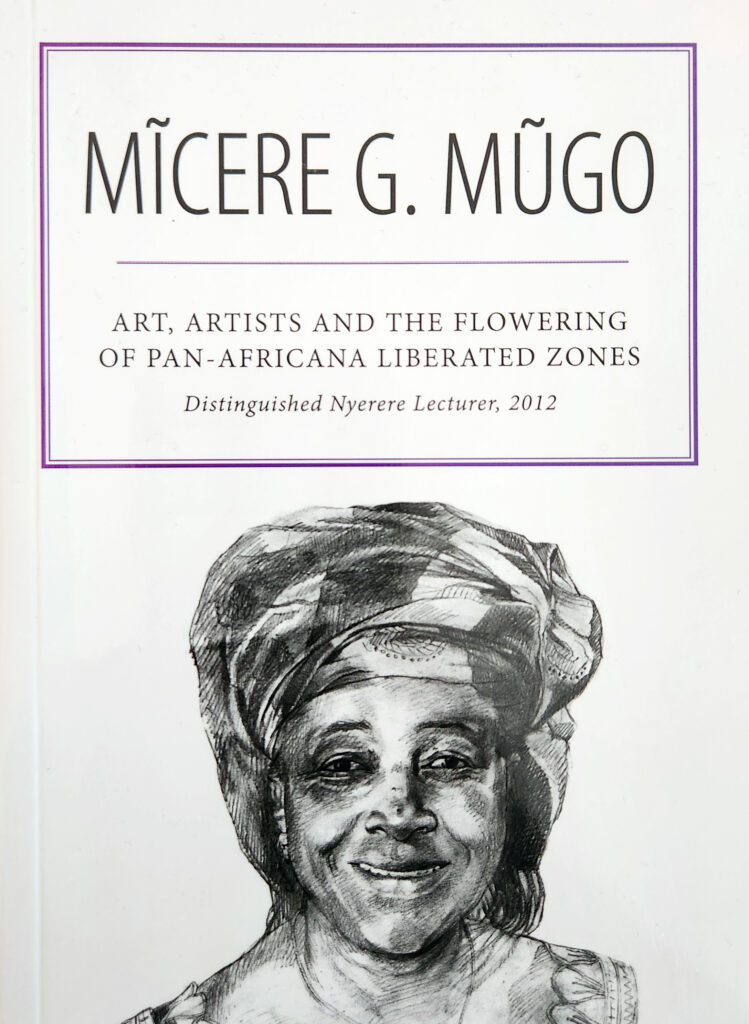
2012
Mĩcere’s Writing and Speaking from the Heart of My Mind is published, as a contribution to scholarship that intersects several disciplines of academic engagement. This collection essays and speeches, spread over 13 chapters, critiques intellectual and academic imperialism, advocating for the creation of new knowledge spaces that recognize the value of African traditions and women’s roles in social development. Touching on the interconnectedness of literature and orature, the collection also explores the pivotal roles of gender, youth, and the masses in re-envisioning Africa’s political and cultural future, calling for a shift away from Eurocentric frameworks as she uses her intellectual work to affirm progressive indigenous African paradigms, subsequently validating indigenous sites of knowledge as spaces for academic enquiry.
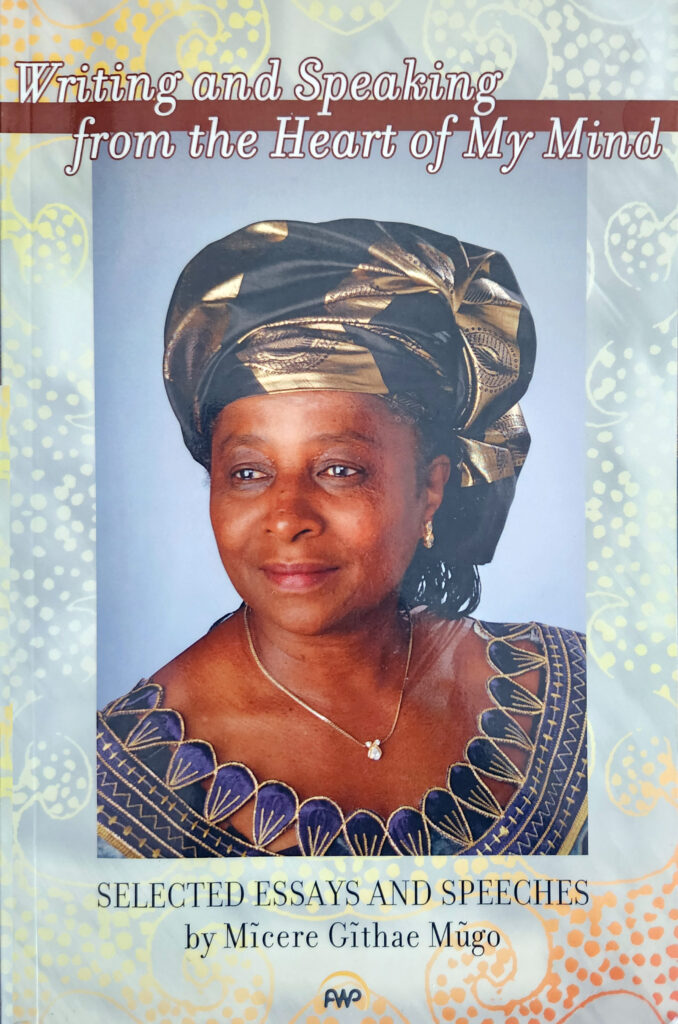
2010
2009
As a member of eminent persons engaged with enriching the Harmonized Draft Constitution of Kenya, Mĩcere rallies for the prioritization of additional considerations including language with protections for peope with disabilities and the LGBTQIA+ community, believing that ALL PEOPLE should be included. This engagement led to a Draft Constitution that had for the first time in the country’s history recognized “culture as the foundation of the nation and as the cumulative civilisation of the Kenyan people and nation.” (Article 11(1)).
2007
2004
Mĩcere Gĩthae Mũgo is named the Laura J. and L. Douglas Meredith Professor for Teaching Exellence, becoming the first Black faculty member at Syracuse University to receive this honor.
2003
Mĩcere establishes the United Women of Africa Organization (UWAO) in Syracuse, New York, focusing on empowering African women navigating life in the diaspora.
1998
At the invitation of the Government of Jamaica, Mĩcere Gĩthae Mũgo presents the keynote address as the country’s national guest of honor for Jamaica’s celebration of Black History Month. The keynote, titled “Reuniting the African Family for Development” is given in Ocho Rios, Jamaica, following a series of media engagements and tours around the country organized by the Ministry of Culture, Gender, Entertainment and Sport.
1996
In the Association of Concerned Africa Scholars (ACAS) No. 46, Winter Bulletin, Mĩcere delivered a rousing and stinging rebuke of Professor Philip D. Curtin’s controversial opinion piece published in The Chronicle of Higher Education and titled “Ghettoizing African History,” in which the celebrated historian of Africa and the Atlantic Slave Trade expressed concern, among other claims, over “increasing evidence of the use of racial criteria in filing faculty posts in the field of African History.” Using plain language and illustrative anecdotes In examining Professor Curtin’s strategically placed and intentionally titled thoughts, Mĩcere decodes the bemoaning as a reaction to “African and African American scholars… moving from the periphery to the center,” calling it an “insult to all scholars of African origin.”
The Syracuse University Chapter of the National Association of the Advancement of Colored People (NAACP) present its Professor of the Year award to Micere in recognition of outstanding leadership.
1994
Mĩcere’s second poetry collection, My Mother’s Poem and Other Songs, is published in Nairobi Kenya. This body of work uses Orature forms and characteristics, displaying an unapologetic position to the notions of the positions literature and art hold in liberation struggles and feminism.
The Pan African Community of Central New York (PACCNY) is co-founded by Mĩcere in Syracuse, New York, to support African immigrants and foster a sense of community, and provide a platform for the exploration of the historical, political, and cultural connections that bond people of African origin.
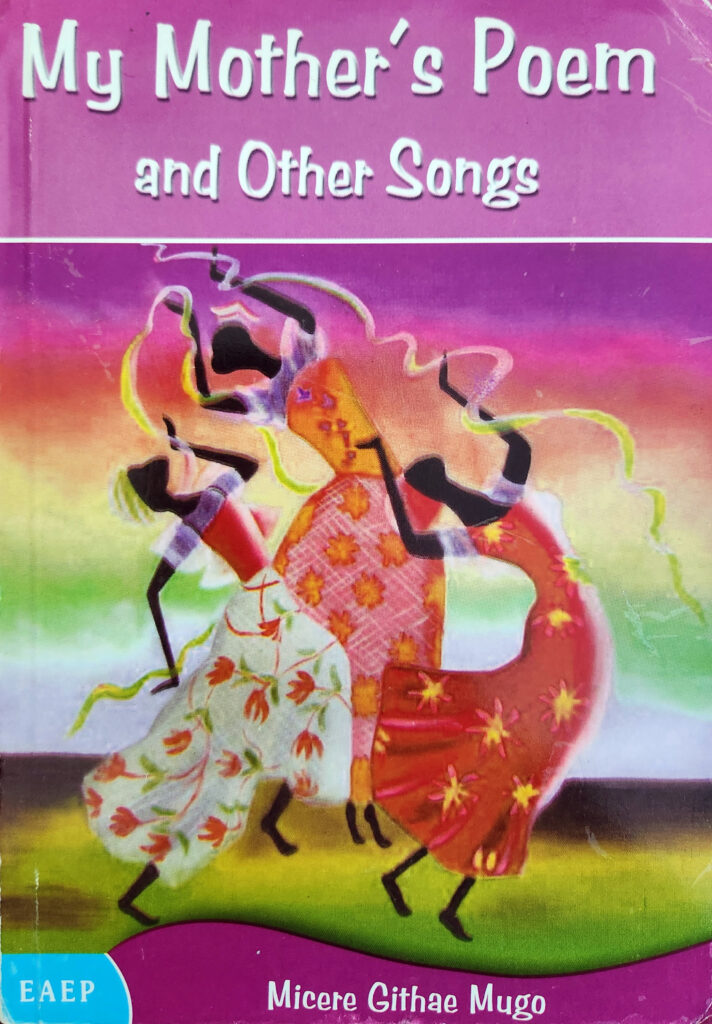
1993
During a visit back to Kenya amidst calls from colleagues to return “home” during the moribund days of the Moi dictatorship, Mĩcere, feeling that her generation had squandered the future of the nation, speaks of the dearth of institutional mentoring for future leaders, and the need to create an institute for young leaders.
1992
Mĩcere returns to North America, joining Cornell University and later Syracuse University. Her subsequent work focuses on championing Africana voices, creating “liberated academic zones” in which she challenges Western perceptions about knowledge, insisting that the contributions of African thinkers and experiences of their struggles are of global relevance for humanity. Outside academia she becomes deeply engaged with the struggles of local communities.
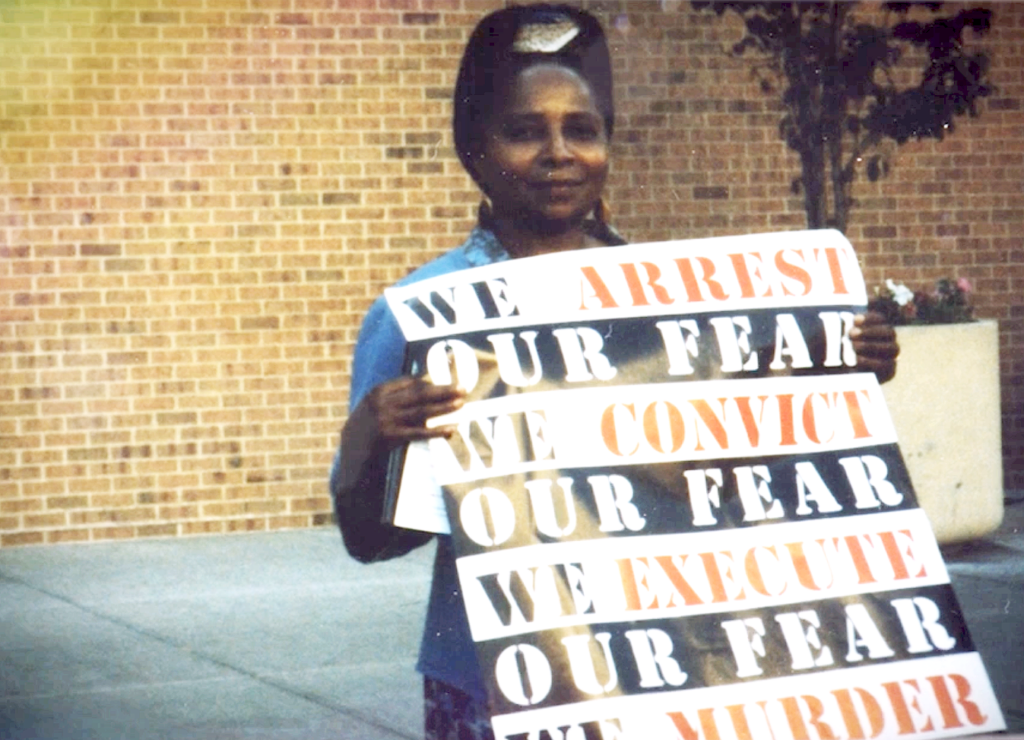
Micere’s poem “Where Are Those Songs?” is featured in “Daughters of Africa: An International Anthology of Words and Writings by Women of African Descent from the Ancient Egyptian to the Present.” This groundbreaking 1000-page anthology, edited by Margaret Busby and published at a time when only a handful were recognized by the literary establishment, reshaped perceptions of Black women’s impact on global literature. Featuring over 200 women from Antigua to Zimbabwe, and placing side-by-side the literature and orature of Africa, the Americas, the Caribbean, and Europe, the assembly of voices which included those of Ama Ata Aidoo, Maya Angelou, Octavia E. Butler, Angela Davis, Buchi Emecheta, Bell Hooks, Noni Jabavu, Jamaica Kincaid, Audre Lorde, Grace Ogot, Molara Ogundipe-Leslie, Zindzi Mandela, Toni Morrison, Ntozake Shange and Alice Walker, affirmed the vital contributions of Black women to the world’s narrative and literary heritage.
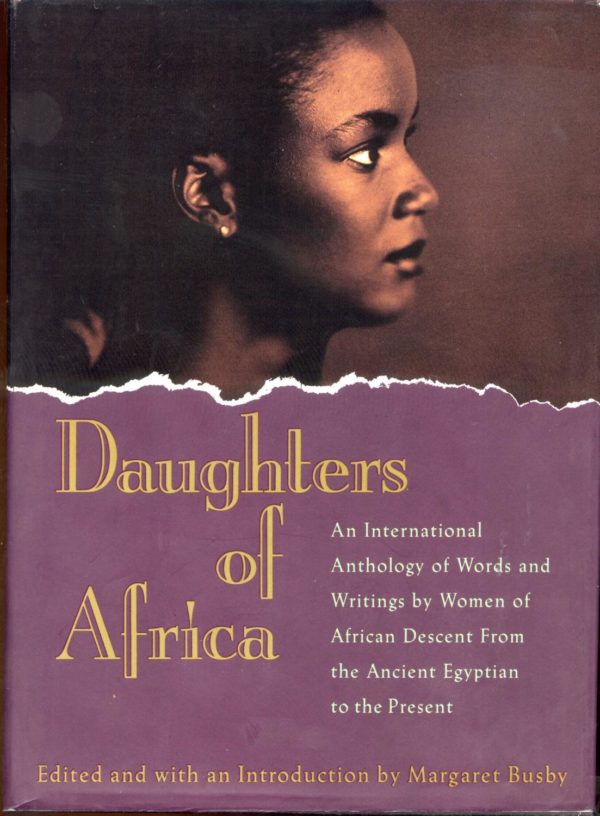
1991
African Orature and Human Rights is published by The Institute of Southern African Students in the Kingdom of Lesotho. In this monography, Mĩcere explores the extent to which African Orature compositions inform an individual’s or a community’s re-enforcement and abuse of human rights. With a focus on the oral expressive world of the Agikuyu people of Central Kenya, the Onion Structure Theory is used to explain how reality constitutes layers upon layers of interrated co-existence.
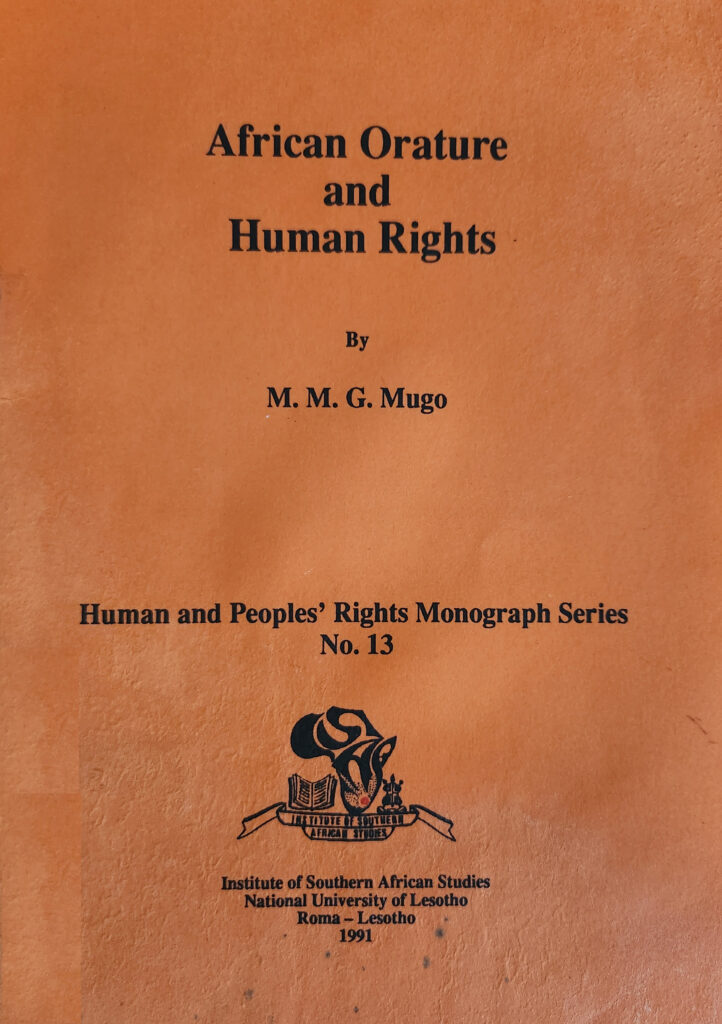
1990
Produced and co-written by Mĩcere, while also performing in the dual roles of Winnie Mandela and Bongi, the play Mandela – Spirit of No Surrender, by the Zamboko/Izibuko Community Theater Group, goes on a national tour of Zimbabwe, and is later invited to tour the Caribbean and Scotland.
1989
A children’s play, Zamani and Sifiso, is published by Mĩcere as part of the Zimbabwe Schools Readers Series developed by the Curriculum Unit of the country’s Ministry of Education.
1986
Mĩcere co-produces and performs in the play “Ngonjera – African Liberation”, presented in Harare by the University of Zimbabwe Drama Group at the joint Honorary Degrees Ceremony for the first President of Tanzania Mwalimu Julius Nyerere and future South African President Comrade Nelson Mandela, awarded by the University of Zimbabwe.
1984
Mĩcere joins the University of Zimbabwe, where alongside her work in community theater she co-edits eight progressive readers, solidifying her legacy in education advocacy, while continuing her work in solidarity with the liberation struggles of Mozambique, Angola, Namibia and South Africa.
1983
While teaching at St. Lawrence University in Canton, New York, Mĩcere volunteers to teach Kiswahili, African History from Antiquity to the Present, and Creative Writing to inmates at Ogdensburgh Correctional Facility and is selected by inmates and staff for the Volunteer of the Year Award, slowly immersing herself in activism for the rights of prisoners, and giving public lectures at various prison facilities.
Mĩcere later traveled across the United States, and to Washington DC to appear before Congress in her campaigns and political work against the dictatorial regime of Daniel arap Moi in Kenya.
1982
Following an attempted coup in Kenya, Mĩcere is forced into exile, starting a period of global activism and scholarship that further inspires her work on orature and justice.
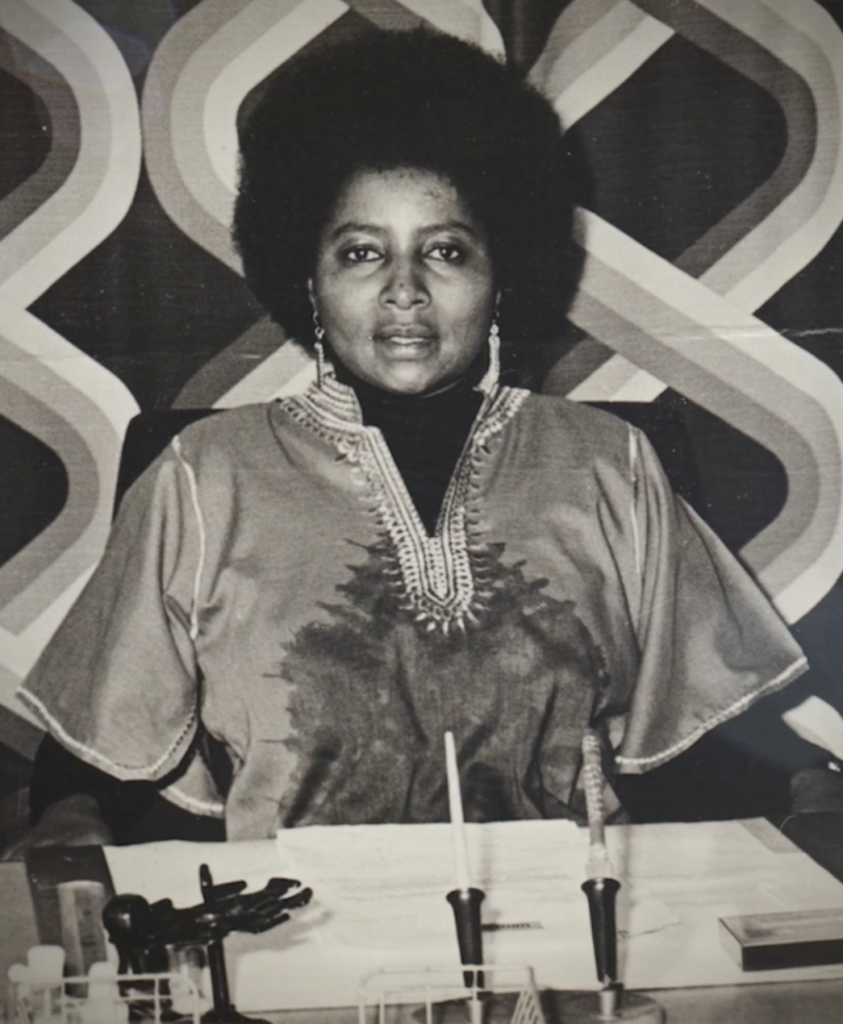
1981
Mĩcere Gĩthae Mũgo is appointed as co-Guest of Honor, alongside American writer and activist James Baldwin, at the 58th Annual PEN International Congress, Amsterdam, Holland, where she delivered two papers: “Visions of Africa” and “The Role of the Writer in Society.”
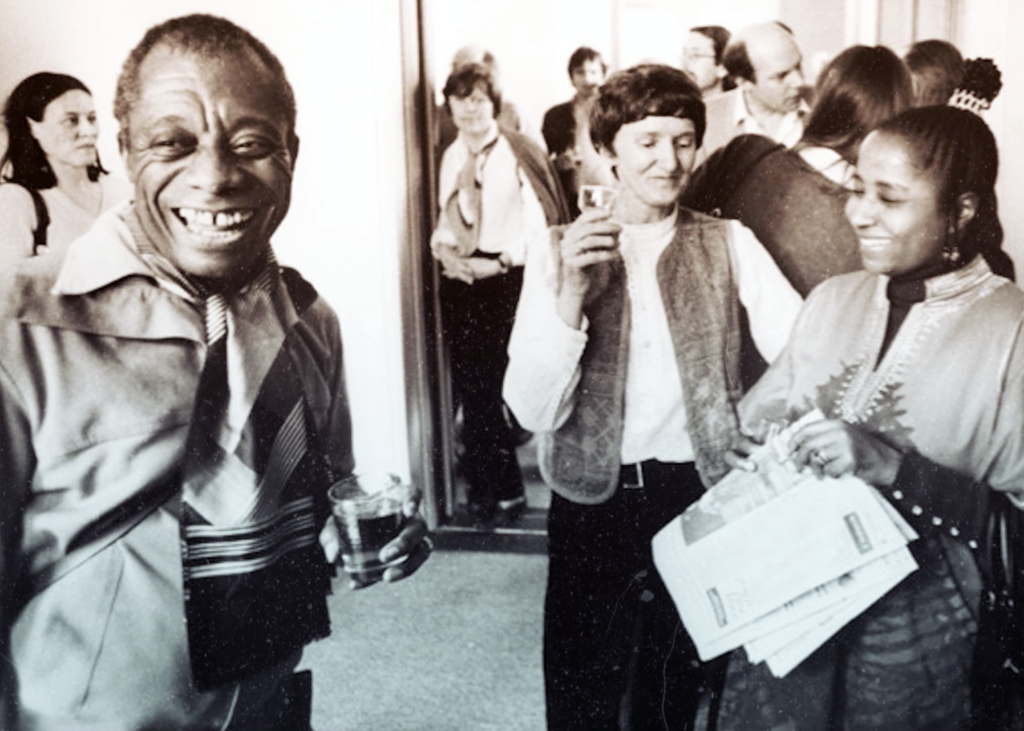
1978
Mĩcere becomes Dean of the Faculty of Arts and Social Sciences at the University of Nairobi, the first and youngest woman Dean in the university’s history, influencing a generation of thinkers and activists.
An edited version of Mĩcere’s doctoral dissertation at the University of New Brunswick is published. Titled Visions of Africa, and using selected fictitious works of four authors: Chinua Achebe, Margaret Laurence, Elspeth Huxley, and Ngugi wa Thiong’o, the comparative study interprets the novels within an African socio-political context, believing that the universality of a book is secondary to the work being able to stand on its own ground.
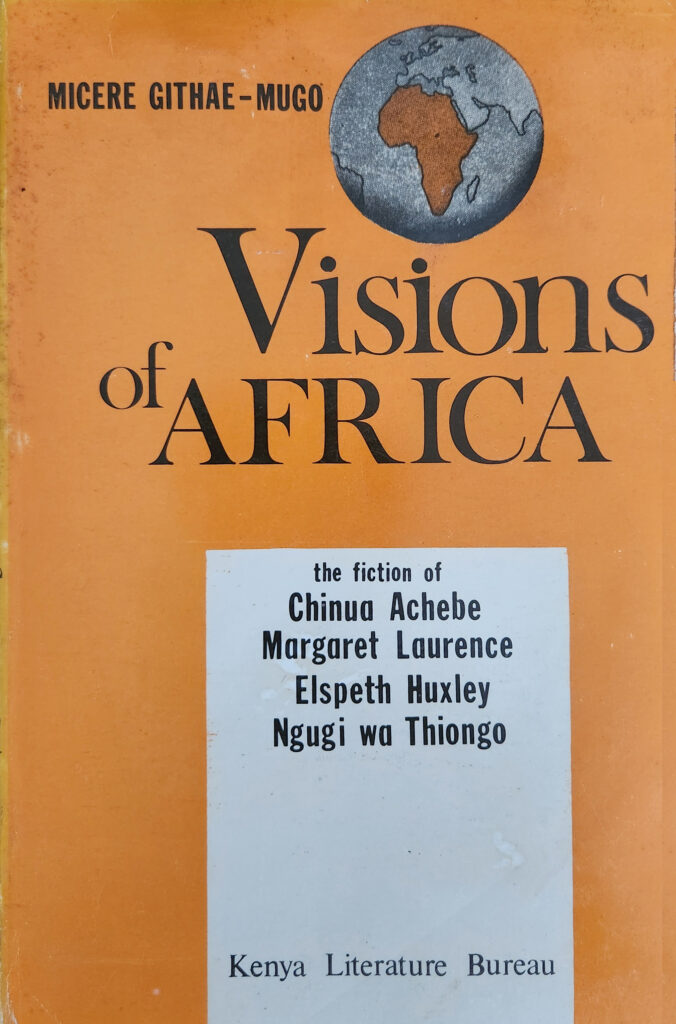
1977
In Lagos, Nigeria, Mĩcere stages, and is awarded the Guinness Award for the best artist for, The Trial of Dedan Kimathi at FESTAC ’77, the Second World Black and African Festival of Arts and Culture — a global celebration featuring over 17,000 artists, performers, and intellectuals from 55 nations. It was, and remains, the largest Pan-African festival in world history. The month-long event facilitated the symbolic and temporary return of the largest number of Black people to the continent, showcasing a plethora of luminaries across Africa and the diaspora including Wole Soyinka, Agostinho Neto, Amiri Baraka, Miriam Makeba, Sun Ra, Barkeley L. Hicks, Lucky Sparrow, Mario Pinto de Andrade, Audre Lourde, Stevie Wonder, Molefe Pheto, Jayne Cortez, Beauford Delany, Jonas Gwangwa, Ama Ata Aidoo, Thabo Mbeki and Oliver Tambo. The play’s staging, the first outside Kenya, resonated deeply with the festival’s celebration of Black resistance, self-determination, and cultural unity.
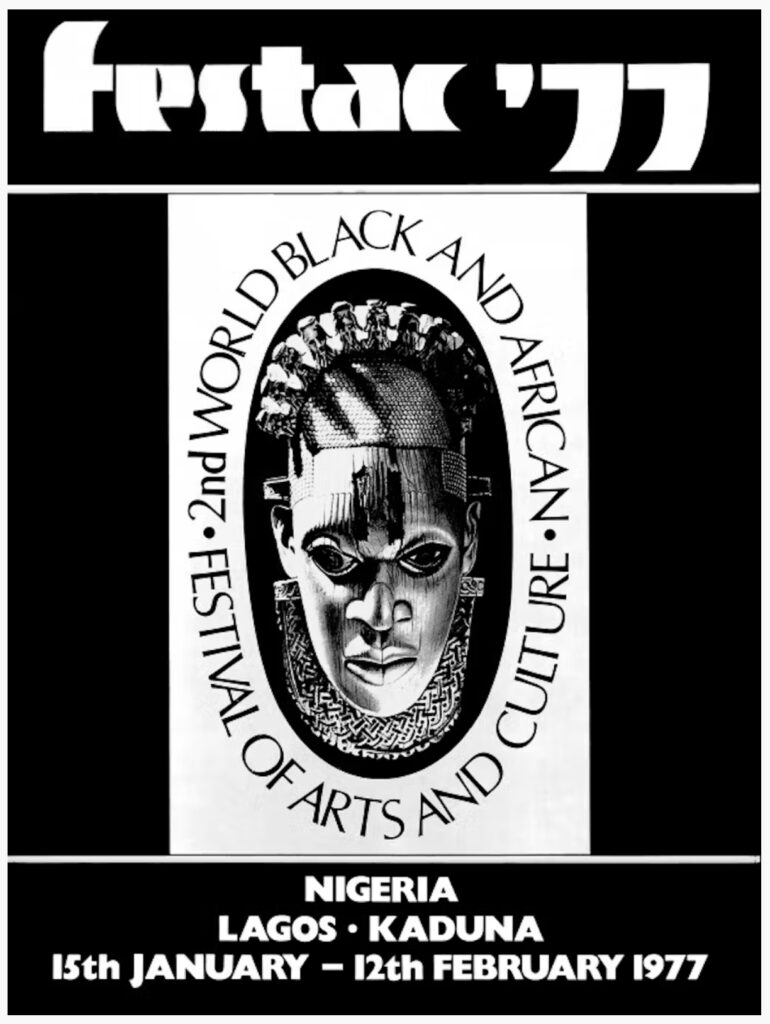
1976
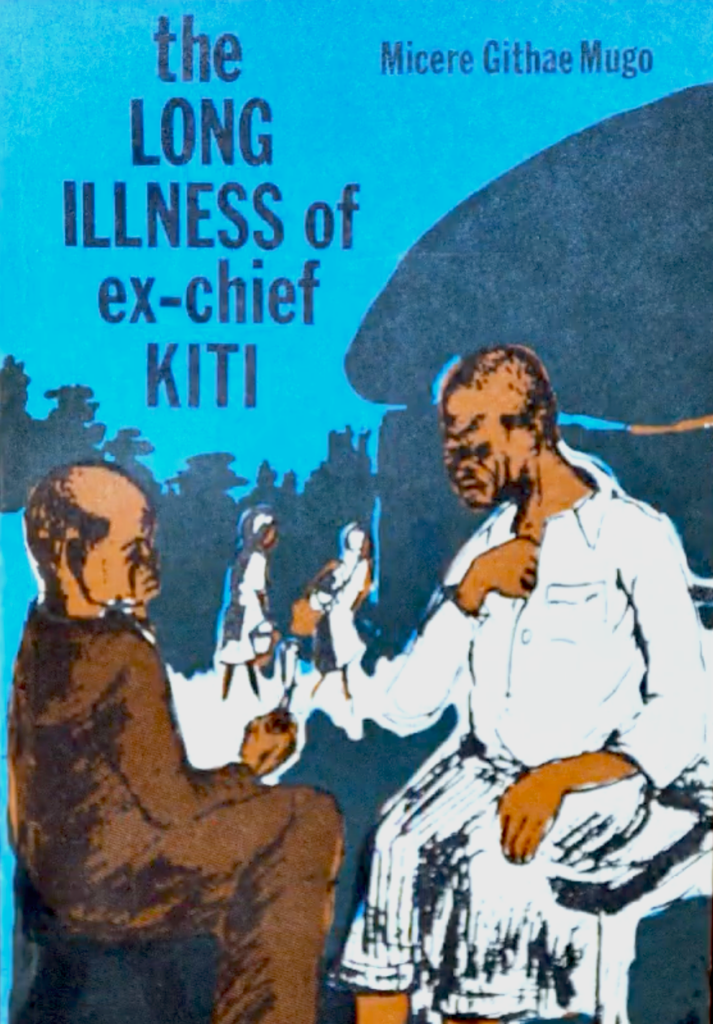
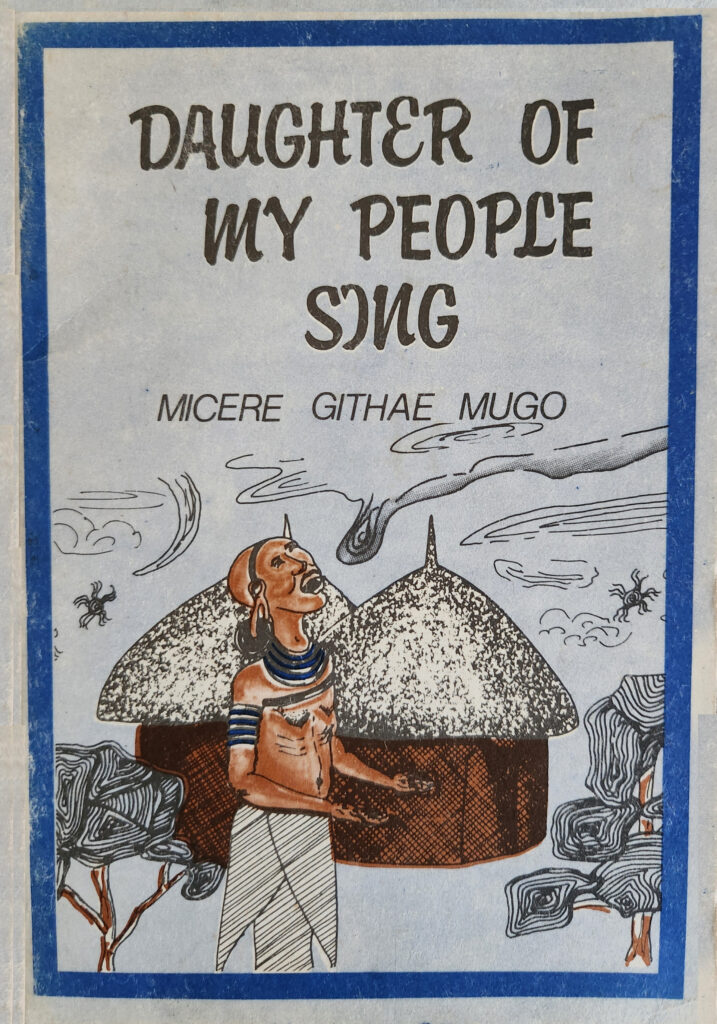
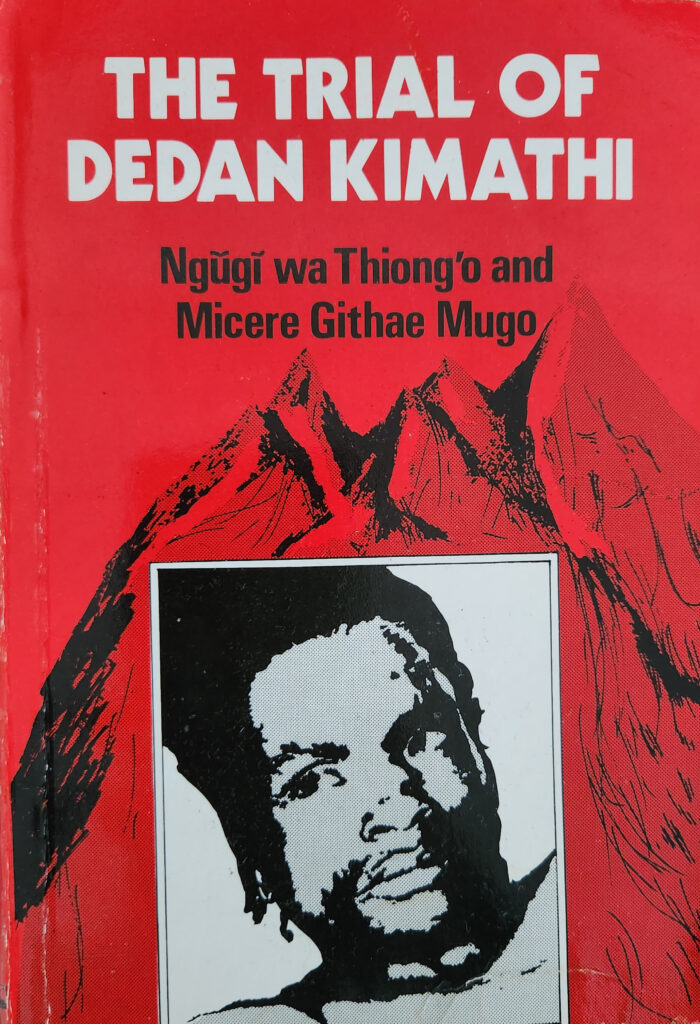
1973
Mĩcere contributes two poems to the No. 96 (Winter) edition of The Fiddlehead, Canada’s leading and oldest literary magazine still in circulation.
She later becomes the first person in East Africa to earn a PhD in Literature, which she receives from the University of New Brunswick in Canada. Her academic journey sparks her dedication to decolonizing education and creating new curricula.
1970
The Sir Charles G.D. Roberts Prize, an annual award by the University of New Brunswick for the best short story submitted by a graduate or undergraduate student, is awarded to Mĩcere Gĩthae for her story Zawadi.
1969
Mĩcere receives the Commonwealth Scholarship Award for Graduate Studies and enrolls in the University of New Brunswick in Fredericton, Canada, where she quickly becomes immersed in the burgeoning Black Arts Movement and North American Civil Rights activism. Drawing upon parallels between the Black Struggle in the Americas and African Liberation movements, this period widens her exposure to African-American and Caribbean literary culture.
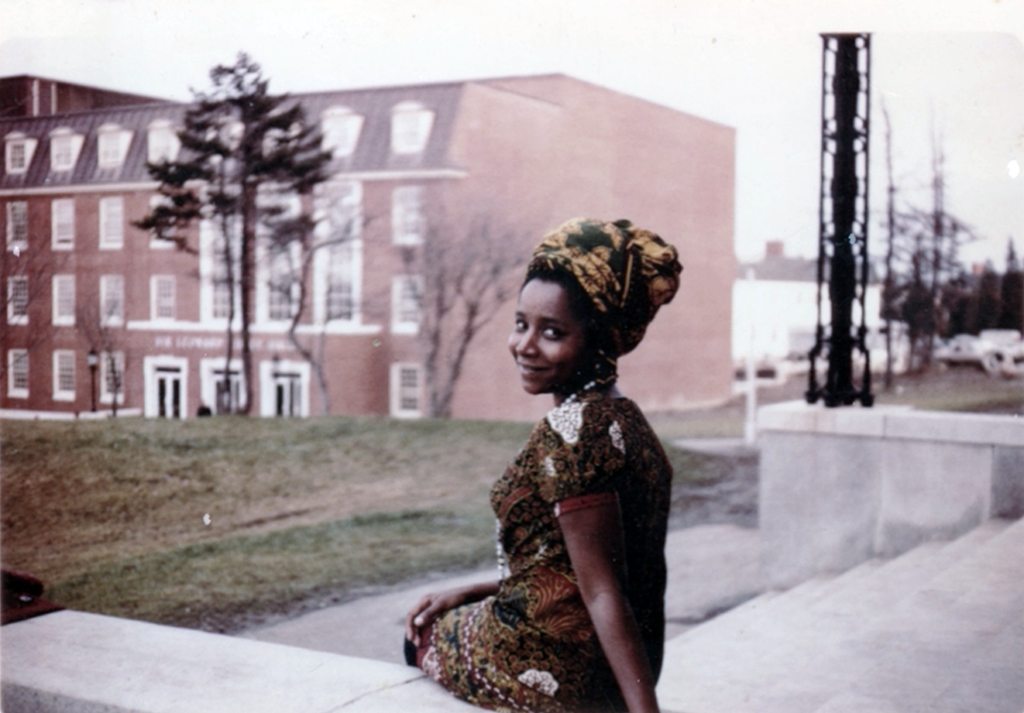
1964
Mĩcere becomes the first female editor of Penpoint – East Africa’s first literary magazine and a keystone of East African cultural and literary life, and produced under the auspieces of the Makerere University English Department. Published works in the magazine featured a broad based Pan African authorship covering themes typically absent in traditional and neo-colonial publishing networks. Mĩcere’s published contributions to Penpoint include a short story, The Innocent (Issue 16, February 1964) and a play, A Problem for the Young (Issue 18, March 1965).
1963
Despite securing a scholarship to Oxford, Mĩcere chooses to study at Makerere University in Uganda, laying the foundation for her engagement with Pan-Africanism and her agitation against literary imperialism. During this period she encountered a new field of academic study, Orature, which focuses on African oral literature, won the best national actress award in the Uganda Drama Festival, and also became a correspondent with the African Service of the British Broadcasting Corporation (BBC).
Later this year, on her 21st birthday, the Republic of Kenya is born.
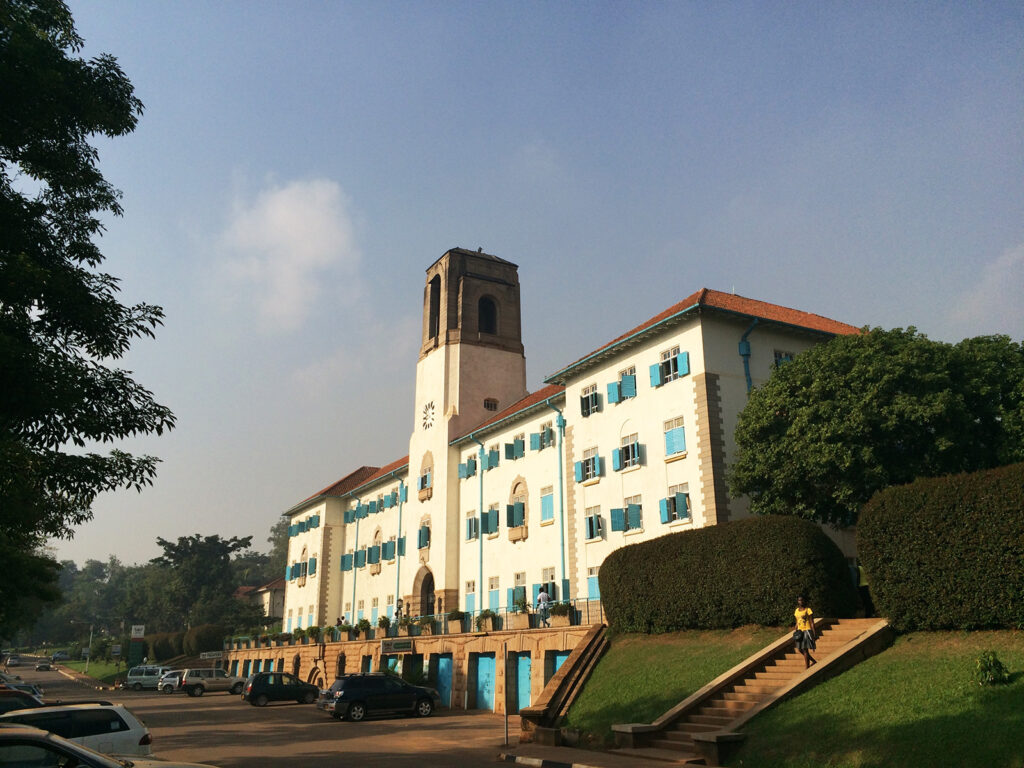
1961
Mĩcere joins Limuru Girls High School, finding herself at the heart of desegregation of education in Kenya. The colonial experiment provided for a quota of two students – one African, one Asian - to prove their respective races possessed the intellectual and social rigour worthy of the elite school community.
1959
Mĩcere writes and publicly recites her first significant poem. Influenced by the colonial education system, the poem followed an Elizabethan epic style, praising her dormitory at Alliance Girls’ High School, Burns House. It reflected the deeply ingrained rhythms and metaphors of the British curriculum she had absorbed in mission and government schools, with no trace of the African oral traditions she knew and loved. This early work marked the beginning of her struggle to reclaim her creative identity amidst the colonial imposition on her artistic expression.
1952
Mĩcere, at age 10, witnesses the violent State of Emergency in Kenya as the Land and Freedom Army resist colonial rule. These experiences awaken her political consciousness.
1942
Mĩcere Gĩthae is born on December 12th.
Become the spark
that ignites transformation
Your impact can help set change in motion.
